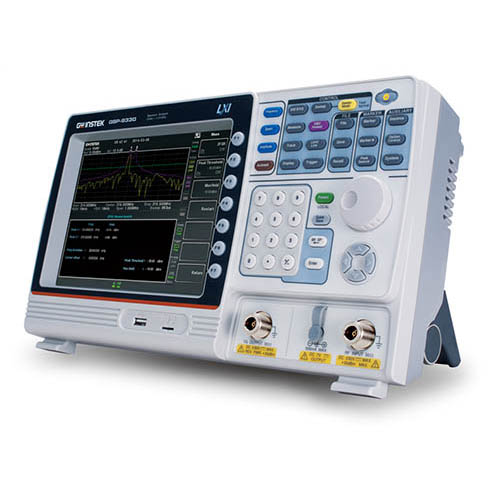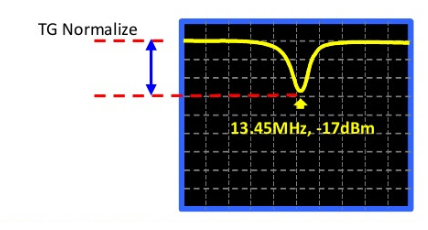Test on 13MHz RFID Tag-RLB Test Method
Test on 13MHz RFID Tag-RLB Test Method Radio Frequency Identification (RFID), a wireless RF identification system, utilizes radio frequency (electromagnetic sensing, microware, etc.) to conduct the transmission, identification and swapping of wireless information.
Contents
|
Radio Frequency Identification (RFID), a wireless RF identification system, utilizes radio frequency (electromagnetic sensing, |
 |
The Basic Understanding of the Test
The test method of RFID Tag utilizes RLB and RFID Tag fixture. After connecting TG, fixture and RF terminal, normalize the signal and place DUT at the center of


Illustration of Curve
This test method aims at obtaining the Return Loss data of DUT to find out its main operating frequency. The amplitude difference under TG Normalize line is the real test difference.

Required Equipment
GSP-9330 / GSP-9300B
Option 01: Tracking Generator
RLB-001: 1GHz Return Loss Bridge GKT-003: RLB Kit
GW RFID Tag Fixture
Test Procedures
1.Connect TG, RF, RLB-001 and RFID Fixture
2.Activate GSP-9330 TG function
3. Execute TG Normalize
4.Connect DUT (RFID Tag)
5.Use Min.Peak Search to obtain the frequency of the lowest amplitude
Test Result

